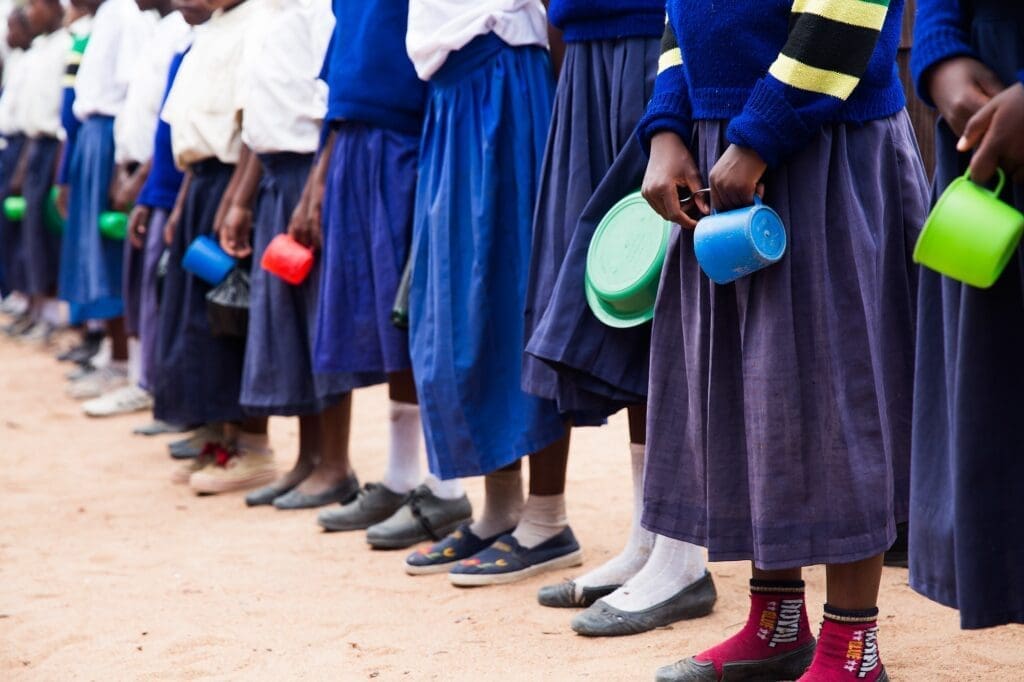Well-Fed Schoolchildren Are Key to Fueling Africa’s Economic Growth and Development

ROME – The United Nations World Food Programme (WFP) joined the African Union (AU) and countries across Africa to celebrate the Africa Day of School Feeding on March 1, 2020, taking the occasion to underscore that investments in human capital through school health and nutrition programs can garner huge pay-offs that extend far beyond the schoolyard.
“Investing in the next generation is an investment in our common future. We see how school feeding programs are changing the lives of millions of people across Africa and the world – especially girls – and unlocking their potential,” said David Beasley, WFP’s Executive Director.
Across Africa, more and more countries have made school feeding a national priority, and over 30 million children now benefit from school feeding programs across the continent. Ghana, Malawi, Kenya and Zimbabwe all feed over one million children, while South Africa and Nigeria each feed more than nine million children every day of the school year. In West Africa alone, governments are investing $500 million a year on school feeding.
School meals ensure that children are healthy and well-nourished, enabling them to attend school, learn, thrive and fulfill their potential as adults. And preliminary results of a Harvard University analysis show that globally, every dollar spent on a school meals program can bring returns of as much as $20.
On top of benefiting schoolchildren, home-grown school feeding programs also boost rural and local economies, as small-scale farmers find new markets for their produce. And community members, often women, earn an income by preparing meals for children. The benefits extend beyond local economies, as countries that make human capital investments – including through school feeding programs – can reap long-term economic benefits.
But sadly, today, 73 million school children around the world go to school hungry, most of whom – 61 million – are in Africa.
This year marks the launch of WFP’s new and ambitious school feeding strategy that builds on six decades of experience and focuses on the 73 million children who currently receive no school health or nutrition support. WFP has also recently teamed up with UNICEF on a joint initiative focusing on six African countries in the Sahel and the Horn of Africa, where the two agencies will provide a comprehensive package of health and nutrition services in schools. Alongside nutritious meals, schoolchildren will also receive critical nutrition and health interventions such as vaccines, deworming, and water, sanitation and hygiene services. WFP will also continue to support the AU’s School Feeding Cluster in advancing WFP’s home-grown approach to school feeding programs on the continent.
~
Watch WFP’s Africa Day of School Feeding video here, and a new DEVEX video on how school meals can fight malnutrition. A selection of photos of WFP’s school feeding programs can be viewed here.
The United Nations World Food Programme is the world’s largest humanitarian organization, saving lives in emergencies, building prosperity and supporting a sustainable future for people recovering from conflict, disasters and the impact of climate change.
Follow us on Twitter @WFPUSA and @wfp_Africa




